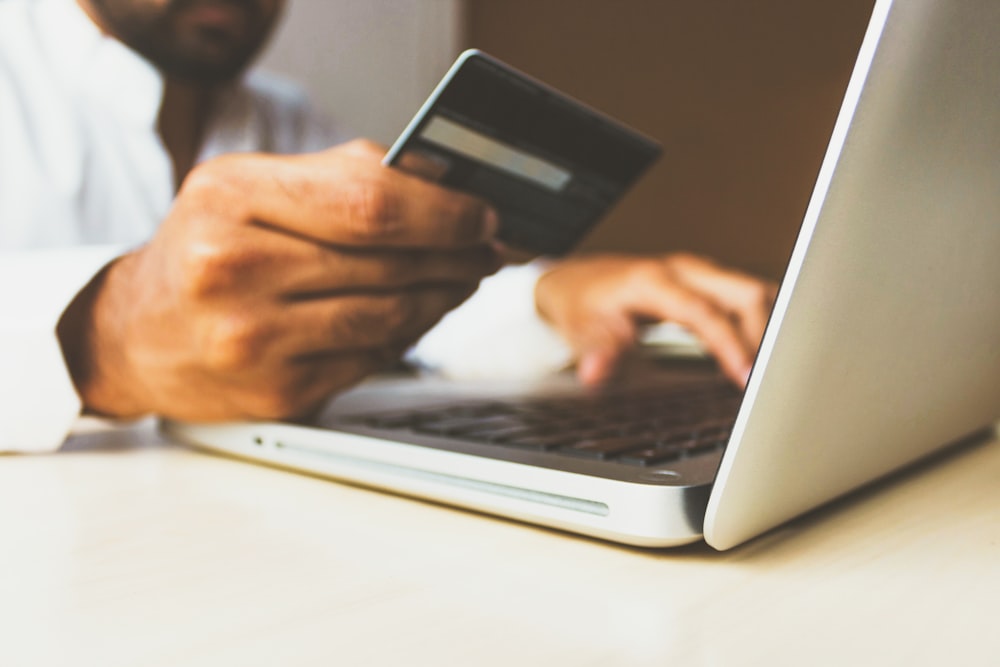With the increasing popularity of online shopping, online fraud has increased too, as each year fraudsters and hackers become more sophisticated. Whilst you can’t guarantee protection against fraud, being mindful when you’re shopping online can prevent some of the most common types of online fraud.

Things to consider…
Where you shop
If you want to make an online purchase from a retailer or person you don’t know – first have a look online at reviews of their website. See what previous buyers have to say about their shopping experience with the company, to help you decide if it’s safe or not.
How you pay
A credit card offers you buyer protection, unlike a debit card – so it can be worth using for online shopping, if you have one. Your bank will assist you to get your money back on your credit card, if you are a victim of fraud. Paypal also offers buyer protection for online payments.
How you secure yourself online
Use strong, separate passwords for each of your different online accounts. If a fraudster hacks your e-mail, they can then access your other accounts and passwords using these details. If the information is the same for everything, they only need one password to access all your information.
It is also worth enabling two-factor authentication when prompted to online or on your phone, as well – for extra security. You can visit www.cyberaware.gov.uk for more information on securing yourself online.
Phishing e-mails and scams
Some of the e-mails or texts you receive will include suspicious website links, which you shouldn’t click on. It’s not worth the risk if you can’t be sure whether or not it’s a genuine site. Instead, if you think it could be real and are interested to- visit the website directly, rather than following the link in the e-mail.
You can also report a suspicious e-mail by forwarding it to the Suspicious Email Reporting Service at report@phishing.gov.uk. To report suspicious texts you have received – forward the original message to 7726.
If things do go wrong
If you think you may have fallen victim to fraud, contact your bank ASAP – they’re best to advise you on what to do next and you can also report it to Action Fraud online at actionfraud.police.uk or by calling 0300 123 2040.
What you can do…
Protect your details – Don’t give out any of your personal or financial information – name, address, bank details, e-mail or phone number to anyone, before you have verified who you are talking to. You can instead contact a company directly, using public information – such as the phone number on their website – so you know you’re not being deceived – if you suspect a fraudster.
Maintain your software – Keep the anti-virus software up-to-date on your personal devices and install a firewall. Your browser can be set to a high level of security to prevent malware issues and computer crime.
Avoid phishing e-mails completely – Your bank or other financial institutions will not ask for personal details in an e-mail, nor will they ask you to confirm your details by clicking on a link in an e-mail they send. So, if you get an e-mail claiming to be your bank, asking for confirmation like this, however genuine it looks, ignore it and report it to your bank if they include any of your real details. The number on the back of your bank card is best to use to ensure you are speaking to your bank.
Monitor your credit report – You can obtain a monthly credit report to check if there are any new accounts or unusual activity in your name and report it to your bank if you see anything you are unsure of. They can give you more details about anything suspicious or help you to reclaim your money back.
Stay secure – Utilise Verified by Visa or MasterCard Secure Code when it’s offered to you, whilst shopping online. This extra level of verification means you have to provide a password to make certain purchases. This password shouldn’t be the same as your others.
If you are affected by a data breach that has leaked your personal information (often this will be one of your passwords associated with your e-mail account) – ensure that you change your password right away for everything you use that e-mail/ password for.
Cover yourself – Shred any receipts or post with your card or personal details on, rather than just throwing them away. Even small amounts of information could be compromised.
If you receive any invoices or receipts, especially if they have your name on them, for purchases you haven’t made – your identity may have been compromised and you’ll need to report it to your bank right away – keeping hold of the proof you have.
If you receive post, phone calls or e-mails offering you deals that seem too good to be true – often that’s because they are. Your bank should not be pressuring you into taking up an offer, so if you are pressured, consider that it’s not the bank or company contacting you.
Fraud recovery fraud refers to when a fraudster pretends to be a lawyer or reputable person, contacting you to help you recover fraud on your account, when they are instead phishing for more information. Again, you should not offer any personal information to someone contacting you.


